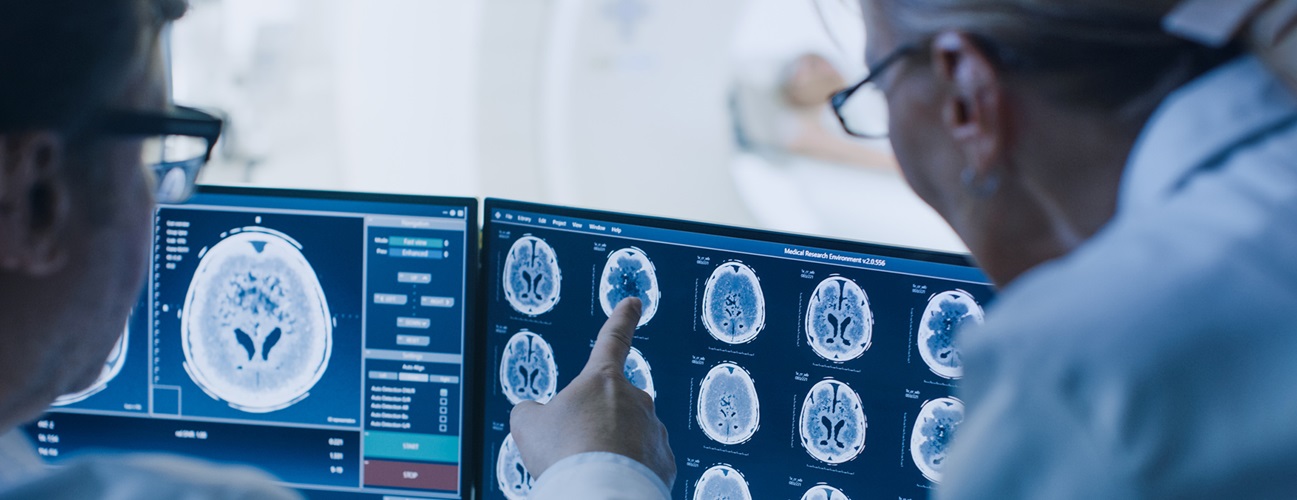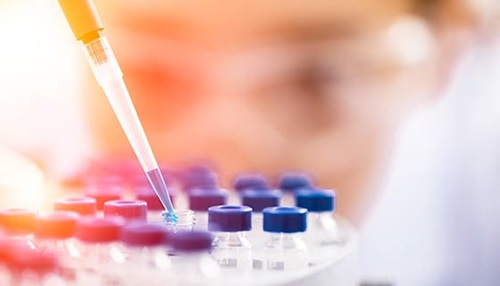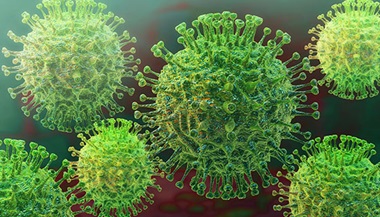How Does Coronavirus Affect the Brain?
Featured Expert:
Patients with COVID-19 are experiencing an array of effects on the brain, ranging in severity from confusion to loss of smell and taste to life-threatening strokes. Younger patients in their 30s and 40s are suffering possibly life-changing neurological issues due to strokes. Although researchers don’t have answers yet as to why the brain may be harmed, they have several theories.
Critical care physician and neurointensivist Robert Stevens, M.D., who is the associate director of the Johns Hopkins Precision Medicine Center of Excellence for Neurocritical Care, has been tracking cases at Johns Hopkins in which patients with COVID-19 also have neurological problems. And, thanks to a new research consortium of more than 20 institutions, including the University of Pittsburgh Medical Center, New York University, Johns Hopkins and health systems in Europe, researchers, including Stevens, are using imaging and tests of blood and spinal fluid to understand how the coronavirus operates so they can prevent and treat effects on the brain.
Stevens explains some of the prevailing scientific theories.
Q: In what ways does the coronavirus affect the brain?
A: Cases around the world show that patients with COVID-19 can have a variety of conditions related to the brain, including:
- Confusion
- Loss of consciousness
- Seizures
- Stroke
- Loss of smell and taste
- Headaches
- Trouble focusing
- Changes in behavior
Patients are also having peripheral nerve issues, such as Guillain-Barré syndrome, which can lead to paralysis and respiratory failure. I estimate that at least half of the patients I’m seeing in the COVID-19 units have neurological symptoms.
Q: How do researchers think COVID-19 impacts the brain?
A: Based on the current research, we think there are four ways COVID-19 may harm the brain, but each needs to be studied rigorously before any conclusions can be made.
Severe Infection
The first possible way is that the virus may have the capacity to enter the brain and cause a severe and sudden infection. Cases reported in China and Japan found the virus’s genetic material in spinal fluid, and a case in Florida found viral particles in brain cells. This might occur due to the virus entering the bloodstream or nerve endings. The loss of smell that occurs in some patients with COVID-19 could indicate that the virus entered through the olfactory bulb, which is located right above the nose and communicates information about smell to the brain.
Immune System in Overdrive
A second possibility is that the immune system goes into overdrive in an attempt to fight COVID-19, producing a “maladaptive” inflammatory response that may cause much of the tissue and organ damage seen in this disease — perhaps more than the virus itself.
Chaos in the Body
The third theory is that all of the physiological changes induced in the body by COVID-19 — ranging from high fevers to low oxygen levels to multiple organ failures — contribute to, or account for, brain dysfunction, such as the delirium or coma seen in many of the severe COVID-19 patients.
Blood-Clotting Abnormalities
The fourth way COVID-19 might affect the brain has to do with the tendency for these patients to suffer a stroke. The blood-clotting system in patients with the illness is highly abnormal, with clots much more likely to occur in these patients than in others. Clots can form in veins deep inside the body or in the lungs, where they can cut off blood flow. A stroke could occur if a blood clot were to block or narrow arteries leading to the brain.
Q: Some patients with COVID-19 in their 30s and 40s are having strokes. Why is that happening?
A: While we haven’t had any of these young stroke patients at Johns Hopkins, I have seen reports of these incidents from colleagues in New York and China.
It may have something to do with the hyperactive blood-clotting system in these patients. Another system that is hyperactivated in patients with COVID-19 is the endothelial system, which consists of the cells that form the barrier between blood vessels and body tissue. This system is more biologically active in younger patients, and the combination of hyperactive endothelial and blood-clotting systems puts these patients at a major risk for developing blood clots.
That said, it would be premature to conclude from available data that COVID-19 preferentially causes strokes in younger patients. It is also plausible that there’s an increase in stroke in COVID-19 patients of all ages.
Q: How is Johns Hopkins studying impacts on the brain associated with COVID-19?
A: We’re investigating selected cases by conducting the appropriate studies and imaging, such as MRIs, electroencephalograms (EEGs) and samples of spinal fluid. However, it can be challenging to get these studies. Our patients with COVID-19 can be extremely weak and even confused, so we need to balance treating their immediate medical needs with information gathering to better understand how we can help fight the virus in others who may develop this condition in the future.






